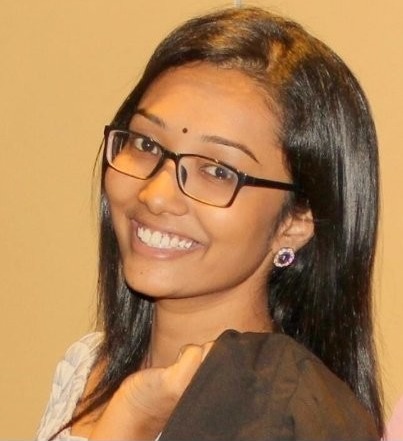Ever since the Covid-19 pandemic hit Malaysia early this year, fellow Malaysians’ daily routine has evolved gradually. Like everybody else around the world, we too were forced to adopt new norms.
The practice of standard operating procedures (SOP) is the first step for people to slowly understand the meaning of new norms and eventually embrace it in their daily life.
We often get confused with SOP compliance and the practice of new norms. Both have different meanings, although they are closely related. New norms set a new way of living. That includes daily routines, cultural beliefs, change of thought process of an individual, family, community, country, region, and eventually the world.
SOPs are just a stepping stone to educate the people to accept and embrace new norms. But Malaysia’s movement restriction orders cannot teach people the real meaning of new norms because fundamentally, the SOPs are also not clear enough.
Vague SOPs
We were mainly driven by movement control restrictions imposed by the government to contain Covid-19 transmissions. Our movement control order (MCO) — under a few phases like conditional MCO (CMCO), enhanced MCO (EMCO), targeted enhanced MCO (TEMCO), recovery MCO (RMCO) — has its standard operating procedures to be complied with by everyone.
Unfortunately, unclear SOPs have shifted the focus of the people while fighting the pandemic. First of all, the implementation of CMCO in Klang Valley should have been announced with thorough and clear SOPs because people’s mobility across Selangor, Kuala Lumpur, and Putrajaya is tremendous for work and business purposes.
The unclear SOPs in terms of inter-district and inter-state movements have confused people for social gatherings. I was surprised to see people hopping to different police stations to get approval before traveling. There was not a standardised instruction even to police frontliners. When a person does not get permission to travel from one police station, they opt to another and can get the approval.
I was not given permission for a travel application to visit my sick mother in Kluang, Johor, because I went five days earlier than my requested date, just to avoid a possible last-minute rejection. Apparently, the police officer was not sure if he could grant my request because the SOPs are changing on a daily basis and I was asked to come just one or two days before my trip.
I was greatly dismayed when the police officer told me that cops are also watching Senior Defence Minister Ismail Sabri Yaakob’s press conferences every day to be aware of the latest SOPs.
In fact, Segambut MP Hannah Yeoh from the DAP also condemned the government for not announcing a synchronised SOP before announcing a work-from-home order. The announcement created chaos among employees in Klang Valley when they were first asked to undergo a swab test if they are going to the office.
The next day, Ismail Sabri retracted his statement by saying that workers were only encouraged to get tested, whereas only foreign workers under the construction industry and security guards are mandated for Covid-19 testing.
On the other hand, the Ministry of International Trade and Industry came up with another announcement that only 10 per cent of management staff are allowed to go to work. In reality, the instruction was not followed by people.
The government neglected small business owners who are required to cross state borders to work and finally, they were asked to get police approval after the issue of summons towards them was raised.
Until today, the government has not announced how many people are allowed in social gatherings, particularly wedding ceremonies. How can it be fair to the people when the government announces the suspension of wedding ceremonies with just two days’ prior notice?
SOPs Do Not Fully Illustrate New Norms
How do we define new norms here? Although the government has set some SOPs, it failed to educate people to make amendments to traditions. New norms are not only about wearing face masks and maintaining social distance. It is beyond SOPs.
It means an alteration to our belief system, traditions, rituals, and sentiments. Slowly, the government should train people to accept sudden noticeable cultural changes that will be practiced for at least the next two years, or until a Covid-19 vaccine is available.
Undeniably, marriages and funerals have been important segments of Malaysian life. Instead of suspending wedding ceremonies, the government should draw an SOP allowing marriage functions to be carried out.
When the government stops wedding ceremonies, Malaysians tend to postpone the events, but not embrace new norms by conducting it on a much smaller scale.
A few of my relatives were ready to postpone my cousin’s wedding, but they were not ready to conduct it on a smaller scale just because they believed that the virus would vanish soon. They were not taught the severity of the problem because the government came up with movement restrictions only, but did not educate them.
In such a scenario, people are still waiting to conduct social events on a much bigger scale soon after the government lifts restrictions. But what they do not realise is that the virus will be with us for at least the next two years, according to experts.
First of all, the government should not stop any wedding ceremony that has been planned, but to instead insist that people comply with SOPs. For that, the government should clearly draw relevant SOPs which should be practiced for at least the next six months to one year. This will help the public to get familiarised and accept new norms in their daily life.
The two weeks’ movement restrictions, with an extension after every cycle, are never going to be enough to alter the mindset of people to adapt and live with new norms.
If the government does not train people to amend their socio-cultural practices, we cannot wholly combat Covid-19 virus transmission in the country.
Public health measures won’t be successful by laws merely. Education is the sustainable measure for the success of any public health intervention. The government clearly did not invest much to educate people on the Covid-19 pandemic, which finally resulted in more cases in the third wave.

Kanmani Batumalai is a postgraduate student of Masters in Public Policy and a health writer with CodeBlue.
- This is the personal opinion of the writer and does not necessarily represent the views of CodeBlue.








